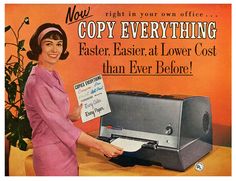This case arose from some rather complex but interesting facts:
 Defendant resigned from his job with an IT consulting firm. One of the firm’s customers hired defendant as an employee. Before the customer/new employer terminated the agreement with the IT consulting firm/former employer, defendant used the customer/new employer’s credentials to access and copy some scripts from the system. (Having the new employee and the scripts eliminated the need to have the consulting firm retained.) The firm/former employer sued under the Computer Fraud and Abuse Act. Defendants (the customer and its new employee) moved to dismiss for failure to state a claim. The court granted the motion.
Defendant resigned from his job with an IT consulting firm. One of the firm’s customers hired defendant as an employee. Before the customer/new employer terminated the agreement with the IT consulting firm/former employer, defendant used the customer/new employer’s credentials to access and copy some scripts from the system. (Having the new employee and the scripts eliminated the need to have the consulting firm retained.) The firm/former employer sued under the Computer Fraud and Abuse Act. Defendants (the customer and its new employee) moved to dismiss for failure to state a claim. The court granted the motion.
It held that the complaint failed to allege “unauthorized access” within the Ninth Circuit’s interpretation of the CFAA.
The court looked to the Ninth Circuit’s holding in LVRC Holdings LLC v. Brekka, 581 F.3d 1127 (9th Cir. 2009), which provides that to access a protected computer “without authorization” is to do so “without any permission at all,” and that to “exceed authorized access” is to “access information on the computer that the person is not entitled to access.” And it looked to the more recent case of U.S. v. Nosal, 676 F.3d 854, 863 (9th Cir. 2012), which teaches that an individual does not “exceed authorized access” simply by misusing information that he or she was entitled to view for some other purpose. Under Nosal, the CFAA regulates access to data, not its use by those entitled to access it.
In this case, the court found that the complaint did not allege that defendants were unauthorized to access the scripts in question. In fact, the Statement of Work that the court reviewed specifically granted defendant’s employer and its representatives (including defendant) “sudo access” to “non-shell root commands” that included the scripts at issue.
Plaintiff argued that the access was unauthorized because it had repeatedly refused to grant defendant or his employer the authority to write or edit those scripts. But the court found that argument to address the misuse of the scripts, not unauthorized access. Under Nosal this conduct did not run afoul of the CFAA. So because the complaint failed to allege that defendant and his new employer had no access rights to the scripts, and because the documents upon which plaintiff relied revealed that defendants had certain access rights, the court dismissed the CFAA claim.
Enki Corporation v. Freedman, 2014 WL 261798 (N.D.Cal. January 23, 2014)
